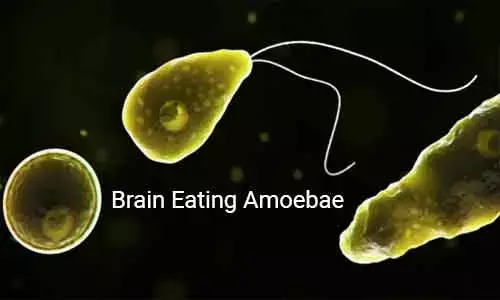- Home
- Medical news & Guidelines
- Anesthesiology
- Cardiology and CTVS
- Critical Care
- Dentistry
- Dermatology
- Diabetes and Endocrinology
- ENT
- Gastroenterology
- Medicine
- Nephrology
- Neurology
- Obstretics-Gynaecology
- Oncology
- Ophthalmology
- Orthopaedics
- Pediatrics-Neonatology
- Psychiatry
- Pulmonology
- Radiology
- Surgery
- Urology
- Laboratory Medicine
- Diet
- Nursing
- Paramedical
- Physiotherapy
- Health news
- Fact Check
- Bone Health Fact Check
- Brain Health Fact Check
- Cancer Related Fact Check
- Child Care Fact Check
- Dental and oral health fact check
- Diabetes and metabolic health fact check
- Diet and Nutrition Fact Check
- Eye and ENT Care Fact Check
- Fitness fact check
- Gut health fact check
- Heart health fact check
- Kidney health fact check
- Medical education fact check
- Men's health fact check
- Respiratory fact check
- Skin and hair care fact check
- Vaccine and Immunization fact check
- Women's health fact check
- AYUSH
- State News
- Andaman and Nicobar Islands
- Andhra Pradesh
- Arunachal Pradesh
- Assam
- Bihar
- Chandigarh
- Chattisgarh
- Dadra and Nagar Haveli
- Daman and Diu
- Delhi
- Goa
- Gujarat
- Haryana
- Himachal Pradesh
- Jammu & Kashmir
- Jharkhand
- Karnataka
- Kerala
- Ladakh
- Lakshadweep
- Madhya Pradesh
- Maharashtra
- Manipur
- Meghalaya
- Mizoram
- Nagaland
- Odisha
- Puducherry
- Punjab
- Rajasthan
- Sikkim
- Tamil Nadu
- Telangana
- Tripura
- Uttar Pradesh
- Uttrakhand
- West Bengal
- Medical Education
- Industry
Kerala on alert after rare brain-eating amoeba kills 9-year-old girl

Kerala Sees Surge in Deadly Brain Infection
Kozhikode: A nine-year-old girl has passed away, and two others, including a three-month-old baby, remain in critical condition after contracting Primary Amoebic Meningoencephalitis (PAM) — a rare but fatal brain infection caused by “brain-eating amoeba”, Naegleria fowleri. All three cases were reported within days in Kozhikode district, prompting Kerala’s health department to issue a public health alert.
The infection is caused by Naegleria fowleri, infamously known as the "brain-eating amoeba", a microscopic organism typically found in warm, fresh water and soil. Once inside the human body, it travels through the nasal passage to the brain.
Also Read: Kerala to Initiate Research on Rising Cases of Brain-Eating Amoeba
According to TNIE, Health department officials said there is no common factor among the three cases, which were reported from different villages in the district. “We are clueless about how the three-month-old baby got infected with the rare disease. The amoeba might have entered the body while bathing. The infected water could enter the body through the nose. At the same time, the brain-eating amoeba is also found in dust and soil. Hence, exposure to water with this particular amoebic presence is not mandatory for infection,” the official said.
Speaking to TNIE, sources said that when molecular diagnosis of meningoencephalitis was done, it was understood that apart from Naegleria fowleri, another genus, Acanthamoeba, also causes the illness. “The notion that water exposure leads to amoebic meningoencephalitis is applicable only to cases caused by Naegleria fowleri. Water exposure is not essentially applicable to meningoencephalitis caused by other amoeba, including acanthamoeba, which has an incubation period of days to months,” sources said.
The first known case of PAM in India was recorded in 1971, and Kerala reported its first case in 2016. Between 2016 and 2023, the state had just eight confirmed cases. But in 2024, Kerala saw a worrying spike with 36 positive cases and nine deaths.
This year alone, Kerala has had eight confirmed PAM cases and two deaths, including the recent fatality in Thamarassery, Kozhikode, on August 14.
Globally, PAM has a fatality rate of 97%, making it one of the most lethal infections known. Until July 2024, all PAM cases reported in India had resulted in death. However, Kerala made medical history last year when a 14-year-old boy from Kozhikode became India’s first recorded survivor, only the 11th in the world.
One of the driving factors behind the rise in reported cases is increased testing for Acute Encephalitis Syndrome (AES) — a broader condition under which amoebic infections fall. Additionally, climate change, rising temperatures, and environmental pollution are believed to be contributing to the survival and spread of dangerous amoebas in natural water bodies and soil.
Also Read: Third case of Brain-Eating Amoeba: 12-year-old Kozhikode boy tests positive
Last year, in response to a sudden surge in cases, Kerala became the first state in India to issue a dedicated treatment protocol and standard operating procedure for managing amoebic meningoencephalitis.


